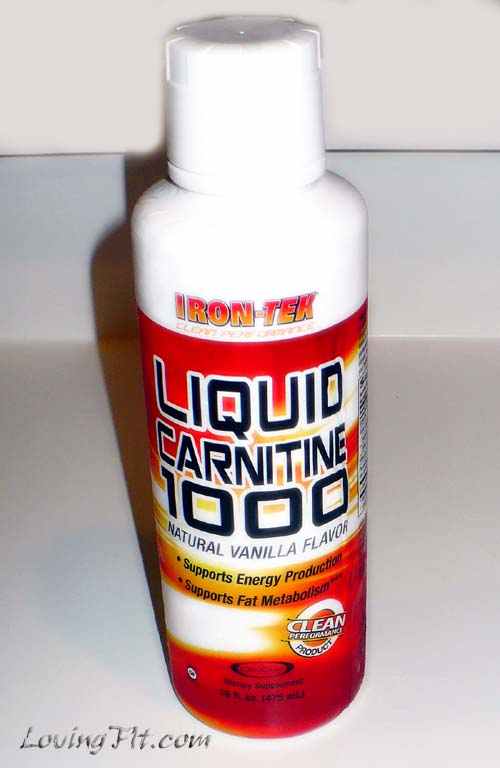Muscle Building L-Carnitine is Great For Your Health!

One of my favorite supplements that I have personally been taking in a liquid form for about 8 years now, turns out to be more beneficial than I thought. It transformed my muscle tone and my energy level. I knew it was amazing but when I did some digging, I was stunned by the information that I found. Now my fridge is packed with this liquid gold. But this supplement has to be in pure liquid form, NOT in diet pills or anything else.
L-carnitine – is more widely known for its fat burning. In dieting, it is also known to reduce the feeling of hunger and weakness. In body building, L-carnitine supplementation promotes development and growth of muscle and delaying muscle fatigue.
Published studies show that L-carnitine is useful in increasing the heart’s output and improving it’s functioning, as well as stimulating the heart’s energy supply and improving cardiac performance.
L-carnitine is very similar to the nonessential amino acid carnitine. It performs some of the same functions, such as helping metabolize food into energy. It is used for both its fat-burning and increasing energy properties in dieting and in muscle building.
Benefits Of L-Carnitine In Your Diet
- Reduces feelings of hunger and weakness.
- Increases energy
- L-carnitine supplementation used in combination with exercise programs has been shown to promote development and growth of muscle
- Delays muscle fatigue
- Reduces post workout muscle soreness.
- L-carnitine has also proven beneficial for people who are suffering from:
- Cardiac Failure – cardioprotective activity and beneficial affects on cardiac function.
- Hypertension – vascular protection properties from its ability to lower triglyceride levels and increase levels of HDL-cholesterol
- Alzheimer’s & Dementia – neuroprotective activity
- Diabetes – no evidence that L-carnitine will prevent diabetes, although abnormal carnitine metabolism is associated with diabetes.
L-carnitine is manufactured in the body from the amino acids lysine and methionine. Niacin, Vitamins B6 and C, and iron are involved in its biosynthesis. It transfers long-chain fatty acids, such as triglycerides into the cells energy center, the mitochondria ( a power house of the cell that produces energy for metabolic activity ), where they may be oxidized to produce energy.
In studies patients with diabetes and high blood pressure were given 4 grams of L-carnitine per day in an preliminary study. After 45 weeks, irregular heartbeat and abnormal heart functioning decreased significantly compared with non-supplemented patients.
For congestive heart failure, a number of studies have shown marked improvements. For instance:
500 mg per day of 500 mg PC per day, a modified form of carnitine [propionyl-L-carnitine], led to a 26% increase in exercise capacity after six months.
1.5 grams PC daily for 15 days showed a 21% increase in exercise tolerance and a 45% increase in oxygen consumption.
2 grams of L-carnitine taken twice per day for two to four weeks led to positive changes in lung function and metabolism during exercise.
Sources Of L-Carnitine
L-Carnitine is found in avocados, dairy products, red meats (especially lamb and beef) and in fermented soy products. It can also be obtained through nutritional supplementation.
With that said, I would like to add, your still have to exercise! It’s not just taking L-Carnitine alone that will give you the results of toned muscles. I’ve met people who seem to believe that if they just take L-carnitine their body will miraculously transform, but there is not such thing as magic when it comes to your body. It’s work, and a bit of modern science.
What did you think about this article? If you have anything you would like to add feel free to leave a comment 🙂
Tatianna
PS: Check out my post on Nutrition In The Modern World 🙂







